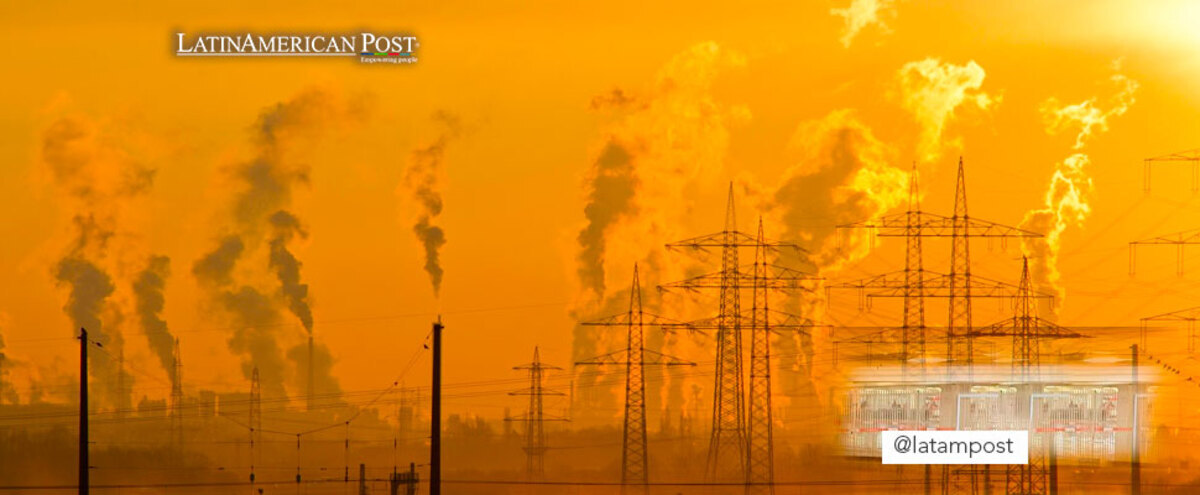Effects of Climate Change on Our Health
From droughts and heatwaves to mosquitoes and earthquakes – the effect of climate change is widespread and diverse. Let’s review some major effects below.

Marlene Joseph
Escucha este artículo
Climate change has become a grave concern for humanity today. Since the 20th century, activists have been raising their voices about how global warming affects not just the business industry but the lives of every citizen around the globe. It’s not just a “First World problem,” as some groups describe it. Instead, it was termed “the biggest global health threat” of the century in 2009, a label recurred by WHO in 2015.
Common people are being affected by the consequences of excessive industrialism by the European nations. From droughts and heatwaves to mosquitoes and earthquakes – the effect of climate change is widespread and diverse. Let’s review some major effects below.
-
Heat exposure problems
Global warming causes the earth’s temperature to fluctuate unnaturally, directly worsening our well-being. A heatwave, for example, emerges because of climate change and has been linked to millions of fatalities in different countries.
For instance, EPA has recorded 1,300 deaths in the USA because of heat exposure. If you count all fatalities emerging from hot and cold temperatures, it will soar to 5 million deaths annually.
-
Extreme weather events
Climate change causes extreme weather events to become more severe and frequent. These events negatively impact not just people’s well-being but their survival too. Storms, floods, droughts, and hurricanes have become more common due to global warming. Emergency evacuations caused by a weather event directly worsen the well-being of all – especially children and older adults. Amidst such catastrophe, we’re witnessing an amplified interest in disaster management courses among students, especially after COVID-19.
Distance learning has made gaining this degree even easier. You can now pursue an online MPH disaster management degree from a reputable institute. This degree teaches you all about policymaking to strengthen communities against the impact of extreme weather events. You will also learn about public health challenges in the United States and prepare yourself academically to help people suffering from calamities.
-
More vector-borne diseases
Vector-borne diseases are caused by insects such as mosquitoes. But climate change has made these pests more active, thereby threatening the well-being of human beings. Some examples of this phenomenon include the spread of Lyme disease, West Nile virus, and other ailments.
You can now observe that these are climate-sensitive diseases getting triggered earlier than usual by the world’s rising temperature. And that’s why climate change is a direct threat to the well-being of humans.
-
Worker productivity decreases
Global warming isn’t just altering the weather around the world but also decreasing employees’ productivity everywhere. It’s simply because extreme temperatures can affect workers’ capacity to perform efficiently across all sectors.
And this efficiency decline has been noticed more prominently in developing countries. For instance, 295 billion work hours were lost alone in 2020 because of heat exposure among workers. It’s another reason why climate change needs to be controlled quickly.
Read also: The Line: The Futuristic City "Enclosed in a Wall" and Free of Emissions in Saudi Arabia
-
Dangerous ozone levels
While industrial activities have been held responsible for ozone layer depletion, global warming also causes an increase in ground-level ozone levels. So, how do these ozone levels affect our health? It’s been observed that ground-level ozone, an air pollutant, may cause the following health issues:
-
Many premature deaths occur because of air pollution
-
Low-quality air because of smog with reduced visibility
-
Damaged lung issues, lung diseases, and aggravated asthma
-
Increased hospital admissions due to respiratory complications
-
Worsened bronchitis and emphysema, as well as reduced lung function
-
Rising food security
Climate change indirectly influences people’s nutrition by making edibles less available because of a global food shortage. For instance, studies suggest that rising CO2 levels can make crops lose some of their minerals and proteins, thereby compromising the well-being of future generations.
In African countries, the nutritional value of common crops such as rice and beans will decline, as research suggests. Droughts will make hunger an even worse problem for the world to tackle. Journalists state that malnutrition will endanger 25 million more children by 2050.
-
Water management problems
There are already concerns about how nations will fight in the future over water access. Aside from being a popular subject for scriptwriters, the water crisis has become a serious problem for all world leaders today. Studies show how climate change causes saltwater to enter freshwater resources and make it unavailable for drinking and farming. As glaciers keep melting, people will have to rely more on rainwater for drinking.
Water will decrease both in access and quality all around the world. It’s harmful to our health because drinking contaminated (low-quality) water leads to the rise of diseases. A person can also become more vulnerable to water-related ailments caused by its lack of quality.
Conclusion
We’ve established that climate change has affected people’s lives worldwide. Extreme weather conditions cause floods, droughts, and hurricanes in different countries. Similarly, ozone and allergens harm the well-being of common folks.
Climate change has caused an increase in airborne diseases, rising food insecurity, and a lack of drinkable water for future generations. These observations show that climate change affects a significant portion of the human population. Therefore, it needs to be controlled today for humanity’s survival.




